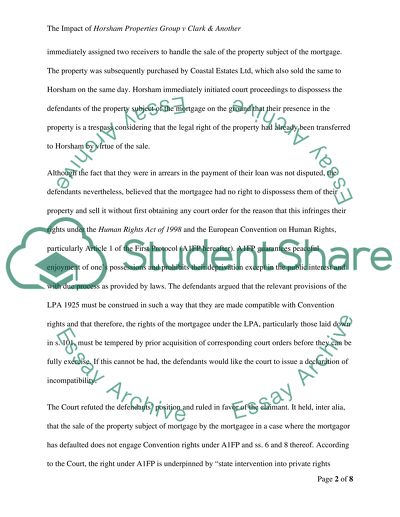Cite this document
(“The impact of Horsham Properties Group v Clark & Another Essay”, n.d.)
Retrieved de https://studentshare.org/law/1390435-land-law
Retrieved de https://studentshare.org/law/1390435-land-law
(The Impact of Horsham Properties Group V Clark & Another Essay)
https://studentshare.org/law/1390435-land-law.
https://studentshare.org/law/1390435-land-law.
“The Impact of Horsham Properties Group V Clark & Another Essay”, n.d. https://studentshare.org/law/1390435-land-law.


